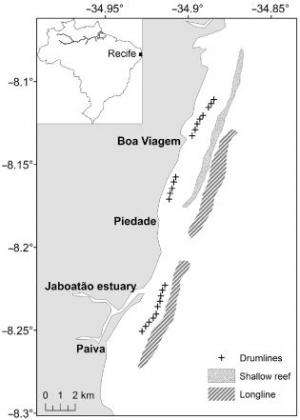Humane strategy reduces shark attacks

A simple and humane technique may be an effective strategy to reduce human encounters with sharks without harming populations of threatened shark species.
Instead of using advanced (and relatively untested) technology to attempt to repel sharks or nondiscriminatory nets that kill other threatened sea life as bycatch, researchers have simply caught sharks and moved them to where they would not pose a threat to swimmers. The Shark Monitoring Program of Recife, Brazil, reported approximately 100% survival of protected species and a 97% decrease in shark attacks when the strategy was used over 8 years.
"Scientists and environmentalists all over the world are concerned about lethal shark control measures like those used in Western Australia. This research shows that non-lethal techniques can help make swimmers safe," said Dr. David Shiffman, who authored a commentary on the strategy in Animal Conservation.
More information: Shiffman, D. (2014), Keeping swimmers safe without killing sharks is a revolution in shark control. Animal Conservation, 17: 299. DOI: 10.1111/acv.12155
Provided by Wiley















